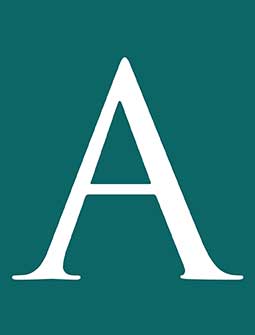
In Notice 2020-39, the IRS extended some deadlines for investing in qualified opportunity funds (QOF) and relaxed some investment requirements to make it easier for QOF investors to deal with the coronavirus pandemic.
The QOF program created a process for designating certain low-income communities and qualifying contiguous census tracts as qualified opportunity zones (QOZs) (Sec. 1400Z-1). Taxpayers, in turn, were offered three federal income tax incentives to invest in a business located within a QOZ: (1) the temporary deferral of capital gains, to the extent the gains are reinvested into a QOF; (2) the partial exclusion of previously deferred gains when certain holding period requirements in a QOF are met; and (3) the permanent exclusion of post-acquisition gains from the sale of an investment in a QOF held longer than 10 years (Sec. 1400Z-2).
Under the IRS relief, taxpayers who sold property for an eligible gain and who would have had 180 days to invest in a QOF to defer that gain have additional time. If a taxpayer’s 180th day to invest in a QOF would have fallen on or after April 1, 2020, and before Dec. 31, 2020, the taxpayer now has until Dec. 31, 2020, to invest that gain into a QOF. Notice 2020-23 had already postponed that deadline to July 15, 2020.
The notice also provides that the period between April 1, 2020, and Dec. 31, 2020, is suspended for purposes of the 30-month period during which property may be substantially improved. Normally, “substantial improvement” requires that, during any 30-month period beginning after the date of acquisition of the post-2017 acquired tangible property, there be “additions to basis with respect to such property” held by the QOF that, in the aggregate, exceed the QOF’s adjusted basis of that property as of the beginning of that 30-month period. Under the notice, the 30-month substantial improvement period is tolled during the period beginning on April 1, 2020, and ending on Dec. 31, 2020.
In addition, because of the COVID-19 pandemic, a QOF’s failure to hold less than the 90% of its assets in qualified opportunity zone property (QOZP) on any semiannual testing dates from April 1, 2020, through Dec. 31, 2020, will be considered to be due to reasonable cause under Sec. 1400Z-2(f)(3), and that failure will not prevent qualification of an entity as a QOF or an investment in a QOF from being a qualifying investment. Therefore, the QOF will not be liable for the statutory penalty under Sec. 1400Z-2(f) for that failure during this period. Although this relief is automatic, a QOF must accurately complete all lines on Form 8996, Qualified Opportunity Fund, filed for each affected tax year except that the QOF should place a “0” in Part IV, line 8, “Penalty.” Form 8996 must be accurately completed and filed with the QOF’s timely filed federal income tax return (including extensions) for the affected tax year(s).
For qualified opportunity zone business (QOZB) projects that meet the requirements of the 31-month working capital safe harbor under the final regulations, taxpayers are reminded that these projects have up to an additional 24 months in which to expend their working capital because of the pandemic. The working capital safe harbor provides QOZBs with a safe harbor for treating an amount of working capital as reasonable under Sec. 1397C(e) if certain requirements are satisfied.
Taxpayers are also reminded that due to the pandemic, QOFs that received distributions of QOF stock or partnership interests as a return of capital or realized proceeds from a sale of that stock, partnership interest, or QOZP have an additional 12 months in which to reinvest those amounts in the manner intended before the pandemic.
Notice 2020-39 modifies Notice 2020-23.
For more news and reporting on the coronavirus and how CPAs can handle challenges related to the pandemic, visit the JofA’s coronavirus resources page.
For tax-related resources, visit the AICPA’s COVID-19: Tax resources page.
— Sally P. Schreiber, J.D., (Sally.Schreiber@aicpa-cima.com) is a Tax Adviser senior editor.
Leave a Reply